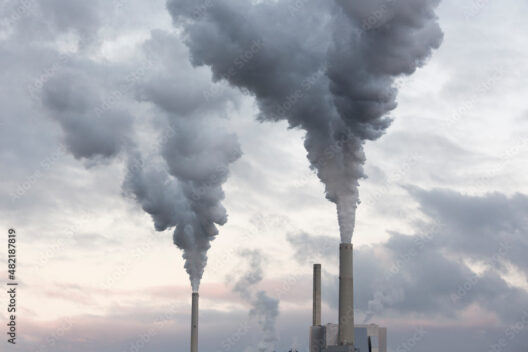In the intricate tapestry of our universe, energy flows like a river, sustaining the delicate balance of life and motion. The conservation of energy, a cornerstone of physics, asserts that energy cannot be created or destroyed, merely transformed from one form to another. However, what if this fundamental tenet were discarded? What would transpire in a world where energy is not conserved? The consequences would be catastrophic, radiating through the realms of science, ecology, and human society.
To fathom the ramifications of energy not being conserved, one must first grasp the essence of energy itself. Energy is ubiquitous; it is the underpinning of all physical processes. From the sun’s radiant beams that warm the Earth to the kinetic energy propelling a bicycle downhill, energy manifests in myriad forms: thermal, kinetic, potential, chemical, and more. Imagine a canvas upon which the colors of existence are painted. Remove the foundational hues, and the entire portrait disintegrates into chaos.
One dramatic consequence of energy not being conserved would be the destabilization of physical laws. The very fabric of mechanics relies on the conservation principle. Vehicles would cease to function, as motion would break down into disarray. Imagine driving a car, only to find that the fuel you purchase—whether gasoline, electricity, or even hydrogen—vanishes into thin air. Transportation would no longer be reliable; a complex interplay of forces, once predictable, devolves into an unpredictable abyss.
Moreover, the implications extend beyond personal inconveniences. The power grid, that colossal network supplying energy to cities and towns, would collapse. The loss of energy conservation would usher in perpetual blackouts. Power plants, once the stalwarts of civilization, would operate ineffectively, as they could not generate nor retain energy. Imagine bustling metropolises submerged in darkness, their hum of vitality silenced. Human activity would regress, and the societal structure we have built would be forced to adapt—or perish.
Ecologically, the ramifications would reverberate through ecosystems. Energy transfer in nature operates on finely tuned mechanisms. Producers, consumers, and decomposers exist in a glorious equilibrium, each relying on the other to thrive. If energy were not conserved, photosynthesis itself—a fundamental process where plants convert sunlight into chemical energy—would falter. Flora would wither, and fauna would follow suit, unable to sustain themselves in a world bereft of the essential energy flow.
Picture a cascade where each element relies on the last. Without the sun nurturing green leaves, herbivores would find their food scarce. As the primary energy source diminishes, carnivores, too, would face starvation. The ripples of energy disintegration would create a domino effect, leading to mass extinctions, transforming vibrant forests into desolate wastelands, and bustling oceans into graveyards devoid of life.
Furthermore, the concept of work itself—defined as energy expended to create change—would face an existential crisis. Work, as we understand it, hinges on energy’s ability to be input, converted, or redirected. In a world where this does not hold true, the economic structures we depend on would disintegrate. Industries reliant on energy—manufacturing, agriculture, technology—would become relics, as the labor force grapples with an insurmountable barrier to productivity.
Beyond the physical and ecological realms lies the human psyche. People derive a sense of security from understanding and controlling their environment. If energy conservation were eliminated, anxiety would permeate society. The unpredictability of energy sources would engender fear; daily life would be characterized by instability and uncertainty. People might regress to primordial survival instincts, hoarding resources and forming enclaves, divided by scarcity and strife.
Yet, one cannot dismiss the introduction of innovative adaptations that may arise in such a dystopian scenario. Humanity has a remarkable capacity for ingenuity, often sparked by adversity. In a world lacking energy conservation, alternative systems might emerge—biomimetic technologies or decentralized energy production could begin to proliferate. The fight for survival might stimulate profound discoveries. Nevertheless, these solutions would be a double-edged sword, necessitating a titanic shift in global consciousness toward sustainability.
Moreover, the social repercussions would spiral into chaos. Political landscapes would be irrevocably altered, as leaders and nations vie for dwindling resources. Conflicts over energy would intensify, leading to stratified societies plagued by inequalities. The affluent might hoard energy solutions, while the impoverished succumb to despair. Imagine disparate worlds existing side by side—one thriving under the illusion of abundance while the other grapples with desperation.
In conclusion, the hypothetical scenario of energy not being conserved unveils a haunting landscape where chaos reigns, ecosystems collapse, and societal structures unravel. The repercussions extend far beyond the physical realm, touching every aspect of human existence. Conservation of energy is more than a scientific principle; it is a clarion call for stewardship of our planet. Appreciating the delicate balance of energy not only fosters an understanding of our universe but serves as a guiding light as we navigate the challenges of our time. The fragile river of energy must be respected, for it is the lifeblood that sustains our beautiful tapestry of life.








